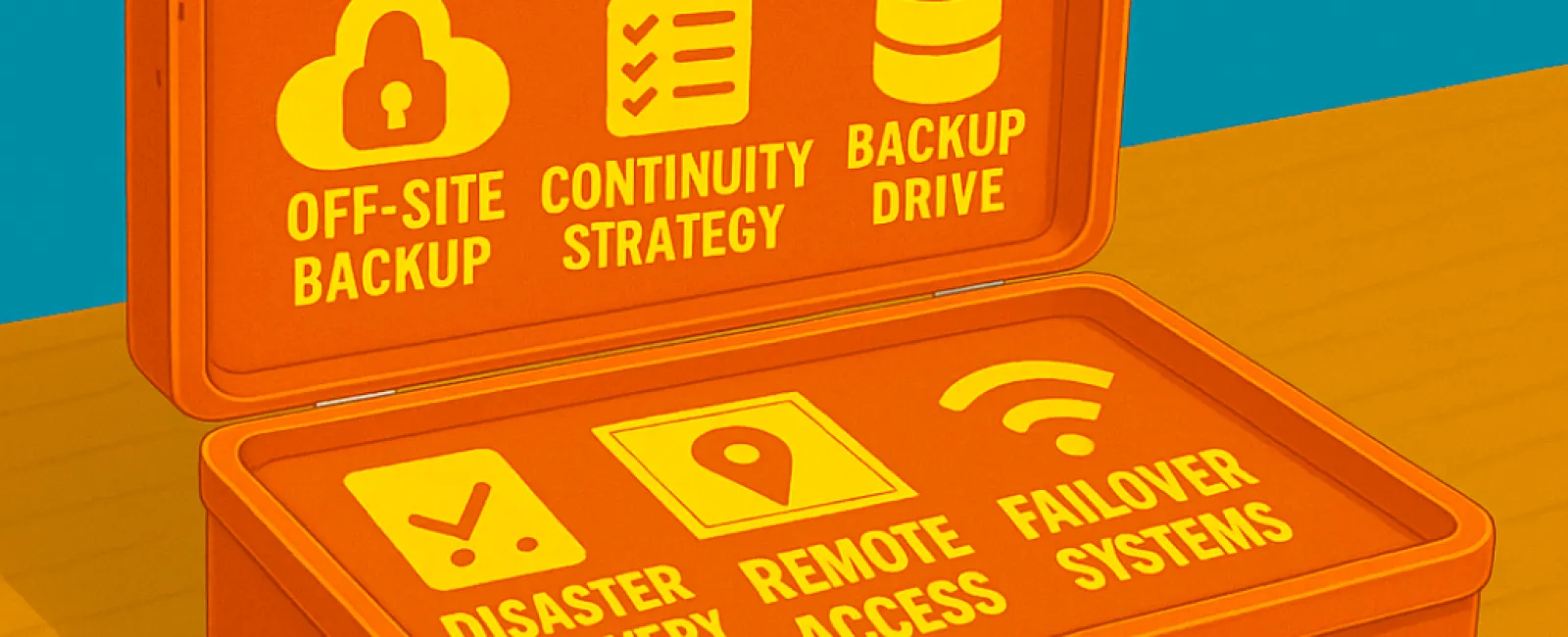July 28, 2025
Unexpected power failures, cyber threats, hardware malfunctions, and natural calamities can strike without notice, and their effects on small businesses can be catastrophic. Many believe that simply having backups is sufficient, but recovering a file is not the same as maintaining business operations. If you can't access your systems, support remote work, or keep your team and clients informed, even a brief interruption can cause lasting damage. A trustworthy IT partner prepares you not only with backups but with a comprehensive strategy to ensure your business stays up and running through any crisis.
Backups Alone Won't Cut It — You Need a Robust Continuity Plan
Backups are vital, no doubt. However, they represent just one piece of the puzzle. What truly safeguards your business is a proactive continuity plan designed to keep your operations seamless during and after disruptions.
When your systems fail, files become unreachable, or your workplace is compromised, having a backup stored locally offers little relief. Without a well-defined plan to swiftly resume operations, you risk significant financial loss, damage to your reputation, and potential compliance issues.
Understanding the Crucial Difference: Backups vs. Business Continuity
Many businesses make this critical mistake:
● Backups enable data restoration.
● Continuity ensures your business keeps running, no matter what.
An effective continuity plan addresses essential questions such as:
● How quickly can we bounce back?
● Where will our team operate if the office is inaccessible?
● Which systems are absolutely critical?
● Who is in charge of initiating the recovery process?
Key components of a solid plan include:
● Encrypted, off-site, and immutable backups
● Clearly prioritized recovery objectives (RTO/RPO)
● Preparedness for remote work
● Redundant infrastructure and failover systems
● Regularly scheduled disaster recovery drills
If your IT provider can't confidently guide you through these critical elements, you're not truly protected—you're just fortunate so far.
Could This Happen to You?
This is not just an alarmist scenario to push you toward a continuity plan. These are real-world disasters with severe impacts. Recently:
● Florida hurricanes forced hundreds of businesses to shut down, leaving those without cloud access completely immobilized.
● North Carolina floods wiped out on-site servers, erasing months of vital data.
● California wildfires destroyed entire office buildings in the Pacific Palisades, many lacking off-site recovery plans.
● Numerous small businesses affected by ransomware discovered their backups were either corrupted or never tested.
Disasters don't only impact large enterprises; they affect businesses like yours every day.
Essential Questions to Ask Now
If disaster struck tomorrow, would your business keep running?
Ask your IT provider:
● How quickly can we recover from a ransomware attack?
● Are our backups regularly tested, and which systems are covered?
● What's the contingency plan if a flood or fire disrupts our office?
● Is our continuity plan compliant with industry standards and regulations?
● Can we continue serving clients if our team must work remotely?
If you don't have full confidence in these answers, your business may already be vulnerable.
Disasters Are Inevitable. Downtime Doesn't Have To Be.
You can't prevent every outage, storm, or cyberattack, but you can control how your business responds.
A competent IT partner helps you recover.
An exceptional one ensures your operations never miss a beat.
Ready to evaluate your business's resilience?
Click Here or call us at 952-941-7333 to schedule your FREE Consult, and let's ensure a disaster never becomes downtime.



